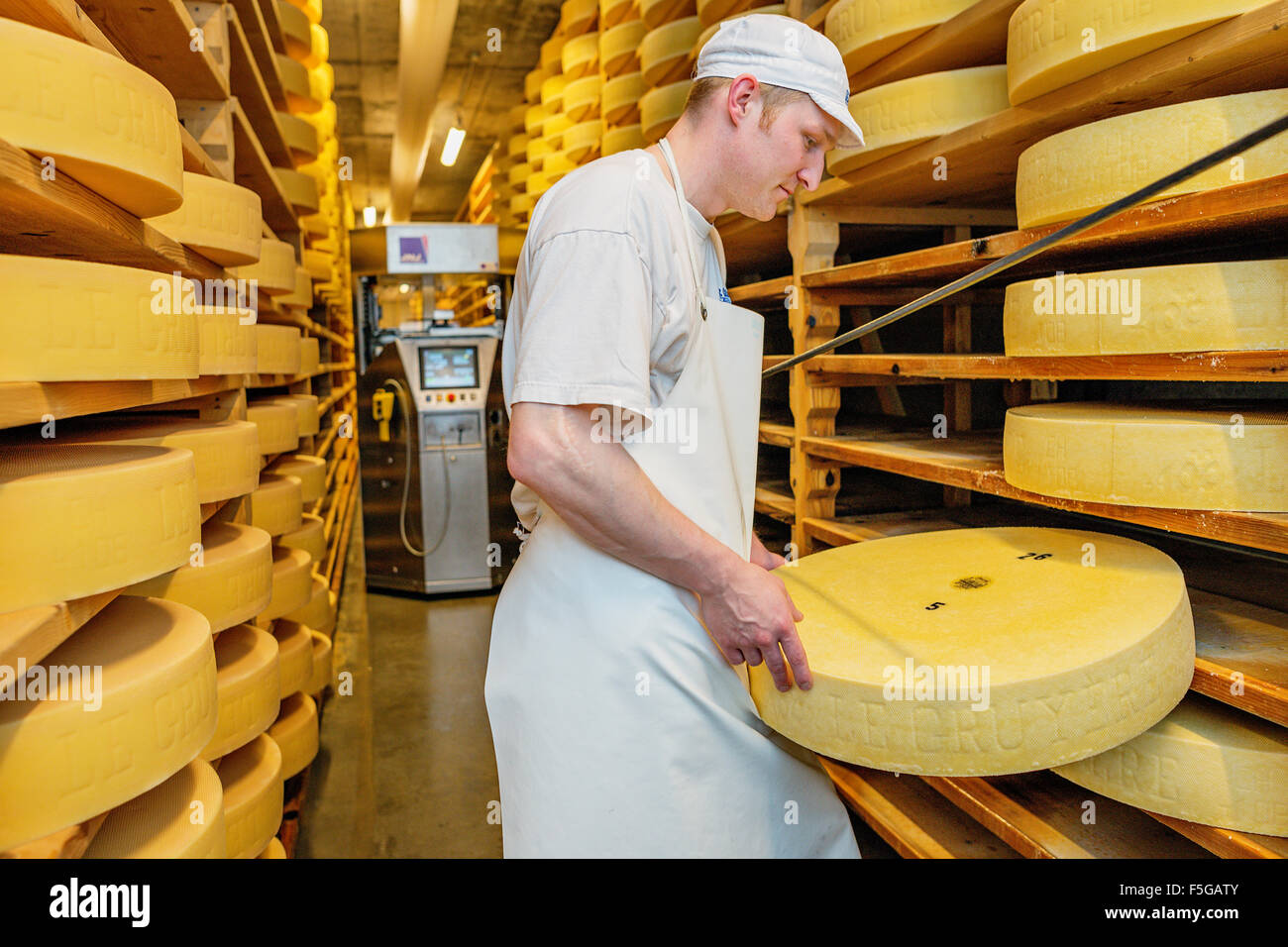Cheese Makers Melbourne: Crafting optimum Cheeses In Your Area
Cheese Makers Melbourne: Crafting optimum Cheeses In Your Area
Blog Article
An Extensive Consider Cheese Manufacturing: Active Ingredients, Methods, and the Future of Craftsmen Cheeses
The elaborate process of cheese production is a fascinating convergence of art and scientific research, where top quality milk, rennet, and certain bacterial societies offer as fundamental aspects. As the industry significantly focuses on sustainability and openness, the future of artisan cheeses guarantees to show both heritage and development.
Trick Ingredients in Cheese Manufacturing
A range of crucial active ingredients play an essential function in cheese manufacturing, each adding to the end product's flavor, structure, and personality. The main component in cheese is milk, which can originate from numerous resources, including cows, goats, and sheep - cheese factory melbourne. The kind of milk used substantially affects celebrity's preference and uniformity; as an example, cow's milk typically yields creamier cheeses, while goat's milk typically creates tasty selections
Another essential active ingredient is rennet, an enzyme utilized to curdle the milk, dividing it into curds and whey. The resource of rennet can be animal, veggie, or microbial, each imparting unique qualities to the cheese.
Salt not only enhances the taste but also serves as a preservative, inhibiting the development of undesirable bacteria. In addition, different flavoring representatives, such as natural herbs, spices, or perhaps smoked timber, can be included in develop one-of-a-kind artisanal cheeses. Together, these components create the foundation of cheese production, setting the phase for diverse and rich cheese ranges.
Traditional Cheese-Making Techniques
Making use of typical cheese-making strategies, artisans around the globe protect time-honored approaches that have been passed down with generations. These techniques often emphasize making use of high-quality, locally sourced milk, which is central to the unique tastes and textures of artisanal cheeses. The procedure typically starts with the cautious home heating of milk, followed by the enhancement of cultures and rennet to promote coagulation.
Once the curds develop, they are reduced, enabling whey to drain, an important action that affects moisture content and texture. The curds are then carefully stirred and cooked to achieve the preferred firmness. Afterward, they are drained and pushed right into mold and mildews. Salting is an important element of this process, boosting taste while additionally serving as a preservative.
Aging, or affinage, is an additional essential part, throughout which cheeses establish their characteristic scents and tastes. Artisans may employ particular aging atmospheres, making use of moisture and temperature controls to refine the cheese's account. The commitment to these conventional techniques not only supports neighborhood economies however additionally contributes to the abundant variety of cheese ranges discovered around the world, commemorating cultural heritage and artisanal workmanship.
Modern Advancements in Cheese Production
Just how have technical improvements changed cheese production in recent years? The combination of modern technology has changed both the effectiveness and top quality of cheese manufacturing.
Additionally, advancements in microbiology have actually allowed cheesemakers to pick specific bacterial societies and enzymes, optimizing flavor profiles and improving service life. Making use of sensor modern technology for checking fermentation conditions has actually additionally come to be widespread, permitting real-time adjustments to maintain optimum environments for cheese aging.

These advancements not just boost the high quality and sustainability of cheese production however additionally encourage craftsmen producers to keep typical flavors while embracing contemporary performance. As innovation remains to advance, the future of cheese manufacturing looks promising, mixing tradition with technology.
The Function of Terroir in Cheese
In the realm of cheese production, terroir plays a crucial function in specifying pop over to this site the unique characteristics of numerous cheeses. Terroir, a French term typically linked with white wine, encompasses the environmental factors that affect farming products, consisting of soil structure, climate, and regional vegetation and animals. In cheese-making, the distinct attributes of the area where the milk is sourced can convey particular tastes and textures to the final item.
For instance, the grazing conditions of dairy animals considerably impact the milk's structure, affected by the kinds of yards and natural herbs available in a specific locale. This varies not just in between nations however additionally between regions within the exact same nation. Furthermore, the microbial communities present in the atmosphere add to the fermentation procedures, leading to varied accounts in taste and scent.
Cheeses such as Roquefort, Parmigiano-Reggiano, and Cheddar exhibit just how terroir can form their identifications, making them distinct and commonly protected by geographical indications. As producers significantly recognize the importance of terroir, there is a growing emphasis on sourcing regional active ingredients and maintaining traditional practices, making sure that each cheese absolutely reflects its beginning.

Future Trends in Craftsmen Cheeses
A noteworthy shift is taking place in the artisan cheese sector, driven by advancing customer choices and technological advancements. Progressively, consumers are moving toward one-of-a-kind, high-quality products that stress both sustainability and neighborhood sourcing - cheese factory melbourne. This fad is motivating artisan cheesemakers to innovate, concentrating on small-batch production and using traditional methods while integrating modern innovation to improve top quality and safety
In addition, there is a growing rate of interest in plant-based and alternate milk items, pressing conventional cheesemakers to discover new opportunities, such as cashew or almond-based cheeses. This shift not just satisfies nutritional constraints but likewise straightens with ecological concerns pertaining to animal agriculture.
Furthermore, openness in sourcing and manufacturing procedures is becoming vital. Customers are over at this website more educated and demand traceability, motivating producers to take on clearer labeling methods and take part in narration that highlights their methods and values.
Final Thought
To conclude, the detailed process of cheese production melds typical techniques with modern-day technologies, resulting in a diverse selection of tastes and textures. The emphasis on top notch active ingredients and the impact of terroir emphasize the virtuosity entailed in cheese production. As the market develops, a concentrate on sustainability and transparency will likely shape the future of artisan cheeses, accommodating a progressively discerning consumer base that values authenticity and craftsmanship in milk items.
Report this page